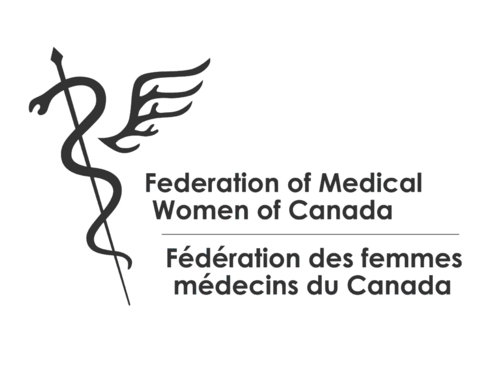As RSV Season Approaches, the Federation of Medical Women of Canada Urges National Response to Protect Infants Across the Country
As RSV Season Approaches, the Federation of Medical Women of Canada Urges National Response to Protect Infants Across the Country
FMWC’s Maternal RSV Task Force releases new white paper highlighting gaps in access and calls for immediate action ahead of RSV season
TORONTO--(BUSINESS WIRE)--Today, the Federation of Medical Women of Canada (FMWC) released its latest white paper through the Maternal RSV Task Force—a national group of experts in maternal, infant, and public health—highlighting the urgent need for equitable access to maternal RSV prevention across Canada. With the 2025–2026 RSV season approaching, the task force is calling for immediate action to protect infants, especially healthy, full-term newborns who account for the majority of severe RSV cases.
Respiratory Syncytial Virus (RSV) is the leading cause of infant hospitalizations in Canada, with 1 in 50 infants hospitalized during their first year of life1. The RSV virus causes upper and lower respiratory tract infections (LRTI)2, and babies who develop LRTI in early childhood have almost double the risk of premature death from respiratory disease relative to unaffected individuals.3
Although two newly approved RSV immunization options have been authorized by Health Canada — a maternal vaccine RSVpreF (Abrysvo™, Pfizer) and a monoclonal antibody for infants nirsevimab (Beyfortus™, Sanofi) — access remains inconsistent across provinces and territories.
Ontario is leading by covering both RSVpreF for pregnant women and pregnant people and nirsevimab for infants, yet provinces like B.C. only cover the older monoclonal antibody, palivizumab, for high-risk infants — leaving 98% of infants unprotected and at risk for RSV.4
“With two safe and effective immunization options now available, we have the tools to protect infants from RSV—but awareness, access, and equity remain critical challenges,” says Dr. Vivien Brown, Family Physician and Co-Chair of the FMWC Maternal RSV Task Force. “This white paper highlights the urgent need for national coordination, public funding, and ongoing education to ensure that every pregnant woman and pregnant person, regardless of where they live, can protect their infant from this serious and preventable disease.”
The white paper outlines 13 short- and long-term recommendations to improve RSV prevention in Canada, including:
- Public funding for RSV immunization (maternal vaccine year-round; nirsevimab seasonally)
- Authorizing pharmacists to administer publicly funded vaccines
- Tailoring education for a range of healthcare providers, including midwives and pharmacists
- Engaging with manufacturers to clarify the predicted availability of immunization options
- Implementing a universal, national immunization registry
- Strengthening national guidance on vaccination and provincial implementation
“This is fundamentally about health equity,” says Dr. Shelley Ross, Family Physician and Co-Chair of the FMWC Maternal RSV Task Force. “Our hope is that by providing a clear, evidence-based roadmap that outlines the steps we can take as a united healthcare system, we can close the gaps and ensure every infant in Canada has the opportunity to be protected from RSV, regardless of geography or circumstance.”
The task force also launched RSVProtect.ca, a national hub for healthcare providers and the public, offering up-to-date information and comprehensive educational resources on RSV and RSV protection strategies.
The FMWC urges pregnant women and pregnant people to speak with their healthcare providers about RSV prevention options and calls on policymakers to help close the access gap as the upcoming 2025–2026 RSV season begins.
For more details on the FMWC Maternal RSV White Paper and its recommendations, please visit www.rsvprotect.ca.
About FMWC
The Federation of Medical Women of Canada (FMWC) is a national organization recognized for its leadership and advocacy for women's evolving health. We are committed to promoting the well-being and health of women and women-identifying individuals both within the medical profession and society at large. The FMWC has a 100-year history in Canada, is a member of the non-governmental organization (NGO) section of the Department of Global Affairs at the United Nations (UN) and is a member of the Medical Women's International Association (MWIA), making us a part of the Economic and Social Council of the UN (ECOSO). For more information, please visit: www.fmwc.ca.
| _____________________________ |
1 Government of Canada. Respiratory syncytial virus (RSV) vaccines: Canadian Immunization Guide. https://www.canada.ca/en/public-health/services/publications/healthy-living/canadian- immunization-guide-part-4-active-vaccines/respiratory-syncytial-virus.html. Updated May 14, 2025. Accessed May 21, 2025. |
2 Sanchez-Martinez A, Moore T, Freitas TS, et al. Recent advances in the prevention and treatment of respiratory syncytial virus disease. J Gen Virol. 2025;106(4). doi: 10.1099/jgv.0.002095 |
3 Zar HJ, Cacho F, Kootbodien T, et al. Early-life respiratory syncytial virus disease and long-term respiratory health. Lancet Respir Med. 2024;12(10):810-821. |
4 Paes B, Brown V, Courtney E, et al. Optimal implementation of an Ontario nirsevimab program for respiratory syncytial virus (RSV) prophylaxis: Recommendations from a provincial RSV expert panel. Hum Vaccin Immunother. 2024;20(1):2429236. |
Contacts
Media:
Cole Douglas
Veritas Communications
cdouglas@veritasinc.com
416.460.5480
